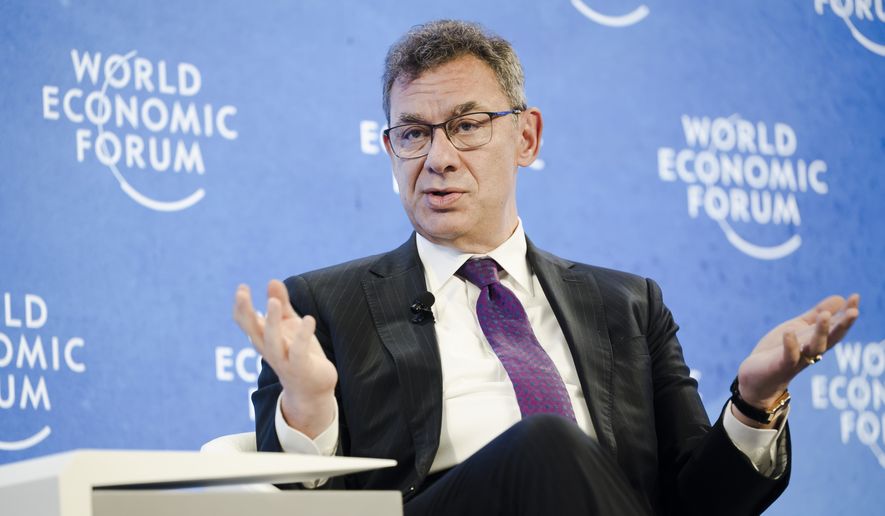Pfizer CEO Albert Bourla said Wednesday he isn’t too worried about the monkeypox outbreak in multiple countries becoming a global panic like COVID-19.
“I don’t have all the information ahead of me. With everything I know, I wouldn’t worry much,” Mr. Bourla told CNBC at the World Economic Forum in Davos, Switzerland.
“But that doesn’t mean that we should relax, right? I think we should monitor to see where the situation goes,” he added.
Mr. Bourla said monkeypox, which is transmitted by close personal contact, “clearly” doesn’t transmit as efficiently as the coronavirus.
Public health experts have expressed similar optimism even as the number of confirmed or suspected cases in non-endemic countries reaches about 325, including at least eight in the U.S.
Cases are typically found in West and Central Africa and result in humans from contact with rodents. Some experts believe the current outbreaks, which have predominantly infected gay men, were spurred in part by sex as raves in Spain and Belgium.
European countries and the U.S. are tapping into stores of vaccines for a related disease — smallpox — to protect high-risk contacts of known monkeypox patients. There are no plans for a mass vaccination drive like the one deployed for the COVID-19 pandemic, which required drugmakers to make a new vaccine from scratch.
“Clearly, there are solutions for this [crisis] if they are needed,” Mr. Bourla said.
Mr. Bourla is a key player in the COVID-19 pandemic because his company makes a major vaccine for the disease. It was the first vaccine deployed in the U.S. and another Pfizer drug, Paxlovid, has been credited with keeping people out of the hospital.
He said the virus will likely stay around forever, but the world can return to normal life.
“As the virus mutates, we have the ability to update the vaccines and have treatments,” Mr. Bourla said.
Also Wednesday, Pfizer said it will make its patented medicines available at-cost to 45 countries that are home to 1.2 billion people. The list of drugs includes COVID-19 vaccines and treatments.
Mr. Bourla said Rwanda, Ghana, Malawi, Senegal and Uganda will be the first countries to benefit from the agreement known as “An Accord for a Healthier World.”
For more information, visit The Washington Times COVID-19 resource page.
• Tom Howell Jr. can be reached at thowell@washingtontimes.com.




Please read our comment policy before commenting.